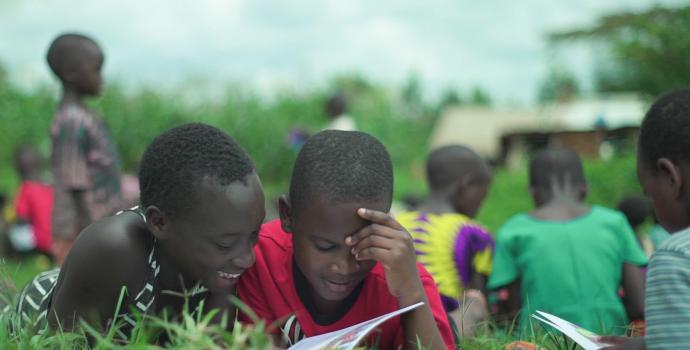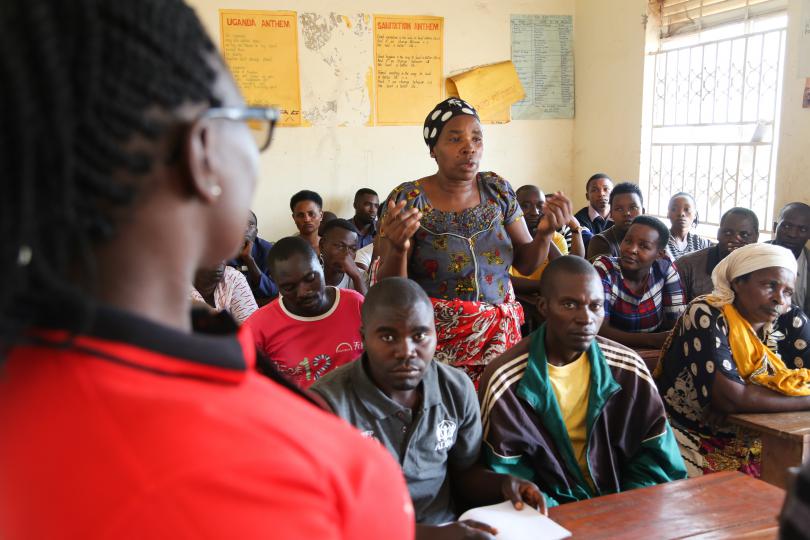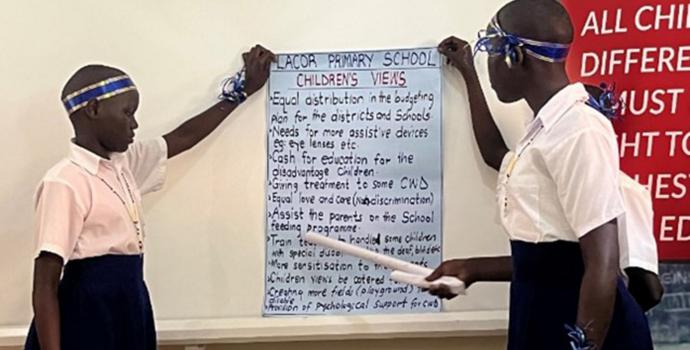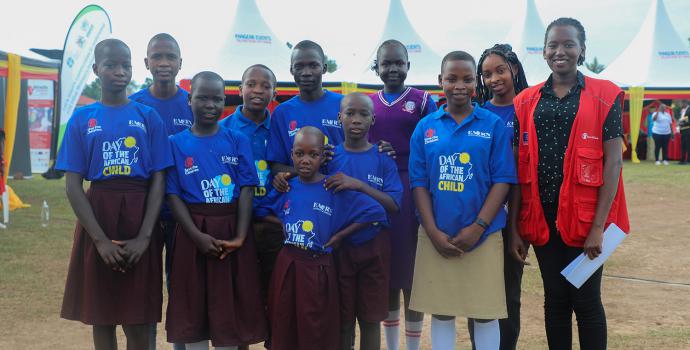Reading clubs boost literacy in Uganda's refugee settlements

When David* arrived in Uganda he could not read or speak English at all. Nor could many of his friends.
Now they get together on Saturday afternoons, eager to start reading.
Like many refugee children whose lives have been uprooted by war, David missed out on a lot of education. Literacy levels in the refugee communities are extremely low, with more than 90 percent of children in the lower grades of primary school unable to read and comprehend. Schools are severely overcrowded and lack books, so teaching children to read is a huge challenge for teachers.
Save the Children’s Literacy Boost approach aims to get the whole community excited about reading, making it a fun part of everyday life.
With support from Education Cannot Wait we have set up reading clubs in Rwamwanja, where more than 71,000 refugees now live. Most are children like David who have fled the ongoing war in eastern DR Congo.
The reading clubs take place outside of school hours, usually on Saturday afternoons. Before they started, Save the Children staff discussed the idea with parents, teachers and community leaders to get their support.
David’s father, Steven, enrolled him in one of the clubs soon after they were set up.
“Now he attends every session,” says Steven. “I can see an improvement in his ability to read. Even at school, his performance this term (since he started attending the club) was much better than the last one.”
David agrees: “When we joined the club, many children did not know how to read. Today I can even read difficult words!”
The clubs use songs, storytelling and other activities to help children read together in groups.
Teachers say they are already seeing an impact on the children.
“We did an assessment here at school of children who are in reading clubs in the community and we found a very big difference,” says teacher Francis Watoro. “Children in lower classes who are in those clubs are able to read. We have very many children in the settlements, so we encourage more of these clubs to be set up.”
A local head teacher, Mr. Mutabazi Lawrence, says the reading clubs are vital for children’s learning. “Our school is very congested, with more than 200 children per class. The overcrowding means learning is not very effective. Children need to read for all learning in school, but many cannot. This is the first time we’ve had a reading club in the community. It’s free so more children can access it, and we hope it will also improve their wider performance at school.”
The clubs are growing in popularity. 23-year-old Serge manages one club that is supposed to have 25 members. “But we get many more children turning up and we can’t turn them away!”
He says that interested parents and community members also gather round to see what’s going on. Even children who dropped out of school come and participate at the club, where they are encouraged to re-enrol.
Ultimately the aim is to get children reading as early as possible. “Learning begins at a very early age,” says Aidah Ninkusiima, one of the Save the Children staff working on the project. “It’s during the lower grade learning that the child is best able to learn skills.”
Below: Aidah from Save the Children meets with community members to discuss and promote the reading clubs

*Names changed to protect identities




